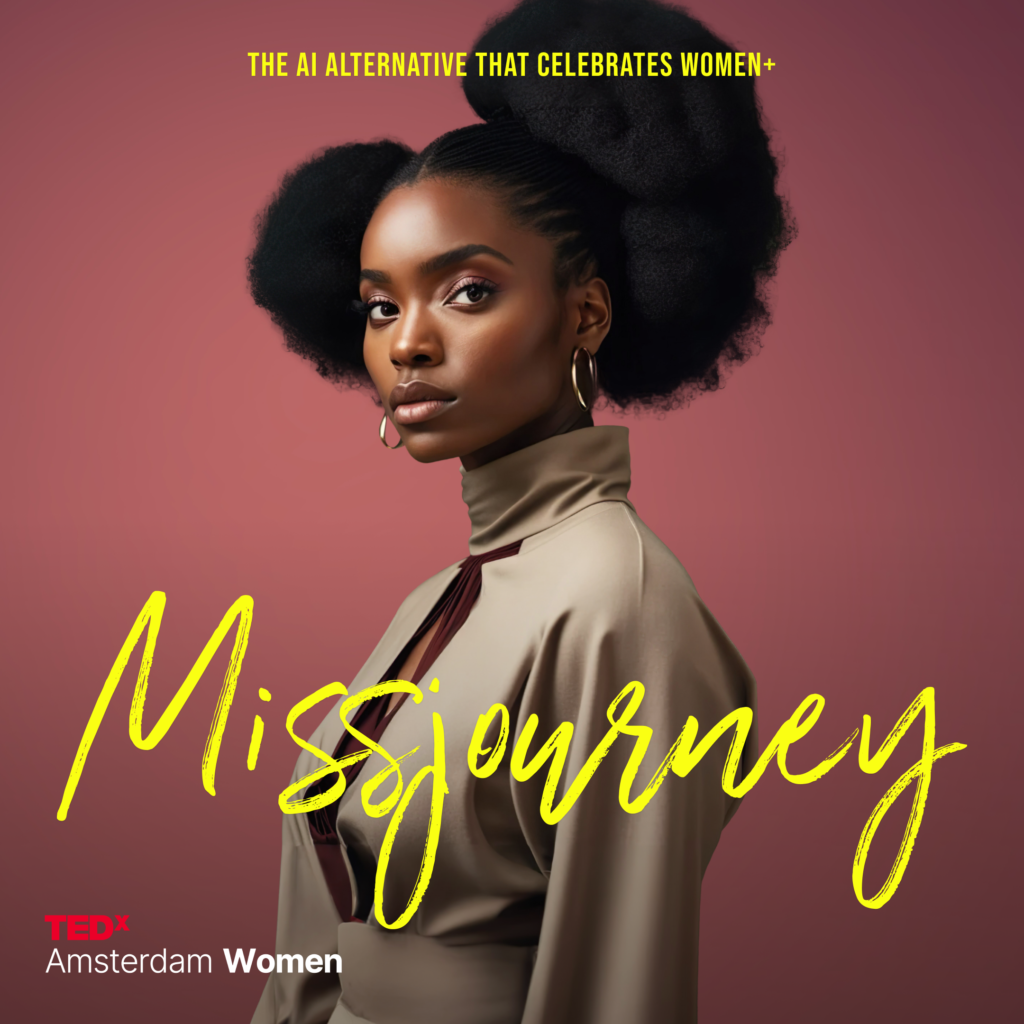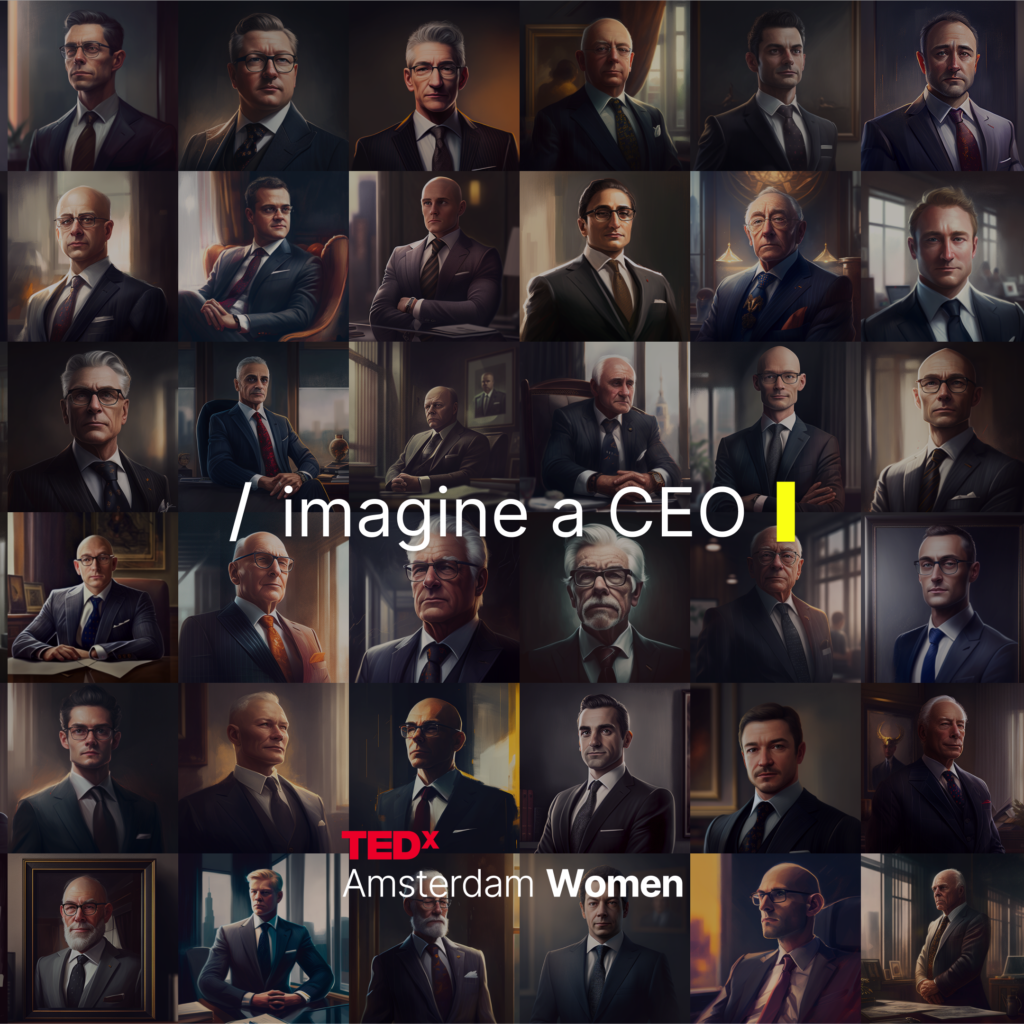
The social challenges that the lack of female representation in AI generated images bring
In today’s business landscape, social issues are becoming increasingly important, and companies are recognizing the need to address them. To navigate this transition effectively, it is crucial to establish agencies that specialize in assisting brands and organizations in tackling these social challenges. Fitzgerald is one of those. And one of the issues the agency came across themselves was the representation of women and minorities in AI generated images. This is how they eventually created the platform of MissJourney.
Dorien Kuiken is Co-founder & Managing Director at Fitzgerald and one of the driving forces behind MissJourney: an AI alternative that celebrates women+. We spoke to her about their drive to create the platform, their journey to developing it and what the future holds for MissJourney.
Author: Ingrid van Heuven van Staereling.
Reframing the narrative
According to Dorien, the key lies in communicating with impact, avoiding the pitfalls of greenwashing and pinkwashing. “It is vital to convey messages in a credible manner.” This way you ensure that it resonates authentically with the target audience. Taking a strategic view from a visionary standpoint is essential. With a background in psychology, she is fully aware of the psychological aspects of her profession. “We need to reframe communication as an opportunity rather than a fear-driven response.” The same with this relatively new technology. She believes that by adopting a positive approach, you can shift the narrative and embrace a more constructive way of engaging with social issues.
Her company is part of Ace and they have a spectrum of specialized agencies, like tech agencies. “We are very much engaged in research and intelligence when it comes to culture, society and movements.” -Dorien explains. “Tech used to be part of campaigns and now it is ‘tech first’. Whole generations are growing up in a world where tech solutions are the base of culture.”
“We also recognized the pitfalls and ethical concerns associated with the usages of AI.”

Exploring the potential of AI
AI technology started becoming widely available mid-2022. It revolutionized various industries such as technology and creative fields. “We were intrigued by its potential and began experimenting with it. At first it was out of curiosity, delving into the possibilities it offered.” Soon, they started incorporating AI, specifically ChatGPT, into their work and even started replacing conventional search engines. “Within our professional circles, such as Ace, we engaged in discussions and debates about the evolving landscape of AI.” As an agency, they were in the midst of positioning themselves and conducting market research to identify a niche in this rapidly developing field. “We felt a sense of connection and enthusiasm as we explored the magical capabilities of AI. However, we also recognized the pitfalls and ethical concerns associated with its usage, sparking conversations on these topics.”
The insights they gained reiterated the immense potential of AI, but also highlighted the need to address its dangers and ethical aspects. “In our company, we prioritize diversity and inclusion, both internally and within the broader industry. We strive to be progressive and actively participate in various initiatives that promote diversity.” It was in December 2022 that the thought of taking action in this area became more pronounced, and by early January this year, they already initiated concrete steps. “We realized that we needed to challenge the prevalent representation of men in leadership roles, as they were disproportionately featured in visual content generated by AI.”
Creating inclusive AI images
March 8th, International Women’s Day, was just around the corner and they felt the urge to take action. “We initially started without a predefined construct or approach, but simply we were simply struck by the lack of diverse representation in these images.” To address this, they needed to start with something. So their first step was to conduct research to move beyond gut feelings and uncover concrete insights. “Using prompts on various tools, we assessed the gender distribution among the 100 most common roles and professions in society. The results were staggering—over 80% of the depicted individuals were men.” While some semblance of diversity was evident in fields like teaching and nursing, it still only accounted for the remaining 20%. Armed with these findings, they pondered over how to build a narrative around them and, more importantly, what actions they could take. “We contemplated potential solutions, starting with an overlay for existing tools or even attempting to hack the system.” However, they soon realized the complexity and challenges inherent in doing that effectively.
When they realized there wasn’t a resource available that could address their needs, they reached out to people online. “A person from Peru offered his assistance.” Drawing inspiration from an existing AI tool, they embarked on developing MissJourney. “Our aim was to create the tool ourselves.” They eventually did this by utilizing a range of diverse AI tools. “If we could do this, others could too.” Some may argue that using only women is not equality. Dorien has a very clear vision on that: “Until the starting point becomes truly equal, such measures are necessary to create balance.” Creating MissJourney was a big adventure. “It has been an incredibly enjoyable journey, a true team effort where everyone devoted their evenings and weekends to make it a reality.”
“It is up to us to shape the trajectory of AI”
Shaping the future of AI
Throughout the year, they plan to host events centered around the theme ‘Decoding the Future’, that Tedx Amsterdam Women created. “We aim to engage in conversations about how to ensure fair representation in now and future AI applications.” As part of this initiative, they want to bring together different stakeholders together. Bringing politicians, AI developers, the creative industry, users and NGO together they want to have meaningful and collaborative discussion about this crucial topic. “We use MissJourney to seek media attention and hope this helps to create genuine, face-to-face conversations among all kinds of domains.”

Dorien emphasizes the importance of open conversations about these type of technologies. “We have learned that it is counterproductive to resort to banning or turning a blind eye to the challenges posed by AI.” She realizes there are many discussions involved around the subject. “We must take responsibility and actively participate in the social debate.” More importantly, she encourages people to refrain from seeing AI as a malevolent force. “It is up to us to shape the trajectory of AI by making informed choices, forming agreements, and holding each other accountable. Only then can we harness its potential without succumbing to fear of an uncontrollable organism.”
